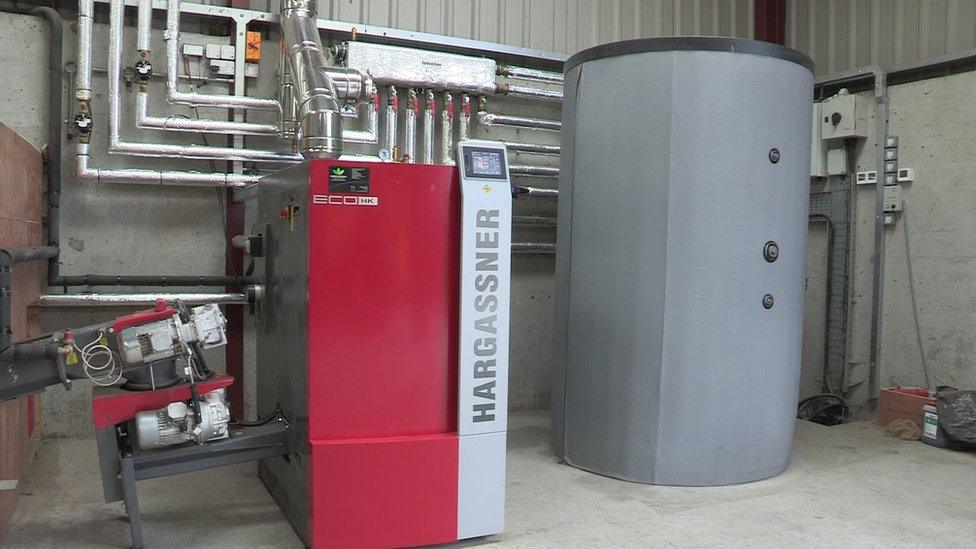RHI payment cuts to be fast-tracked through Westminster
- Published

A biomass boiler, similar to those owned by some RHI scheme claimants
Big cuts to RHI boiler owners' subsidy payments are to to be fast-tracked through Westminster on Wednesday.
They will see annual returns for the most common boiler reduced from £13,000 to £2,000.
Legislation must be passed in the Commons because of the absence of a Stormont Assembly.
The change to the law will set a long-term payment schedule for the Renewable Heat Incentive scheme.
RHI was closed to new entrants amidst political controversy in 2016 and allegations of mishandling of the scandal helped collapse Stormont a year later.
Claimants have suggested that the cuts will threaten the viability of some businesses which invested heavily in the scheme.
Buy outs
But the Department for the Economy insists that firms have already got back more than they put in.
The legislation will also create a pot of £4m a year to buy out firms which want to exit RHI.
In calculating the amount, authorities will take into account any previous subsidy the applicant has received.
The cash will be available over the next three financial years but will only be paid out if the Stormont Executive is not in place.
If devolved institutions are re-established they must decide whether to continue with the buyout.
If passed the subsidy cuts will take effect from 1 April, 2019.

Legislation is being passed in the Commons because of the absence of a Stormont Assembly
The legislation has been included in a bill which will allow for the striking of a regional rate for Northern Ireland.
The Secretary of State Karen Bradley has indicated that she's content the new payment schedule is compatible with the European Convention on Human Rights.
Although it radically cuts payments, the legislation says its necessary to ensure the continuation of the scheme while capping costs.
It says it strikes a balance between protecting the public purse and the rights of RHI claimants.
- Published31 January 2019

- Published26 February 2019
